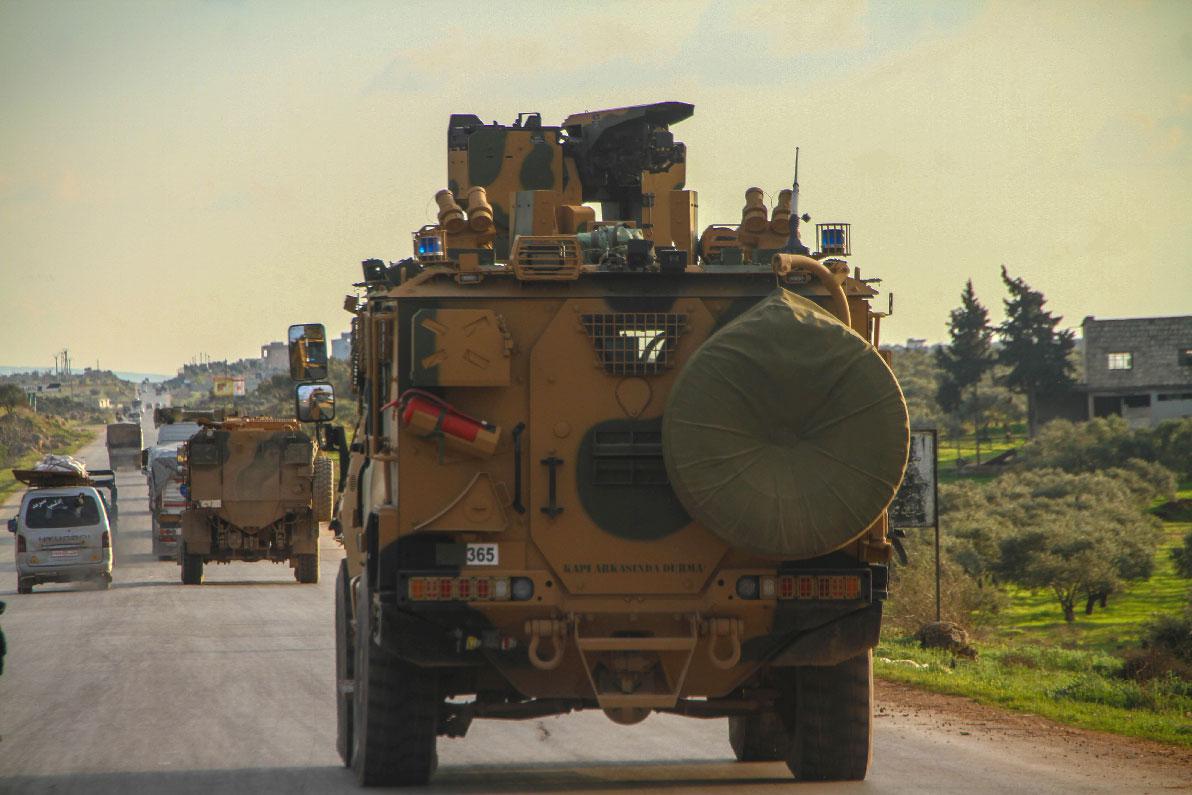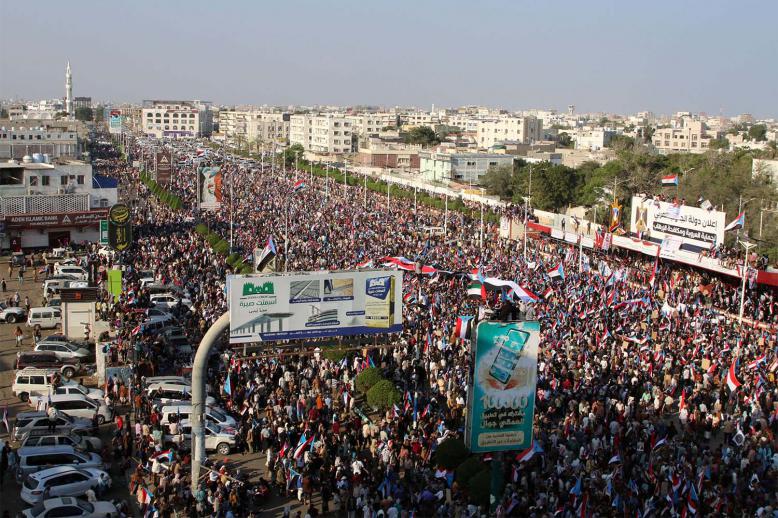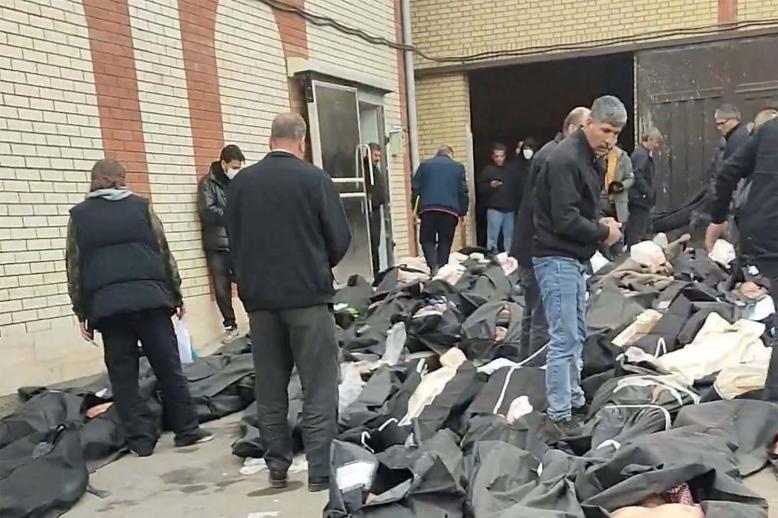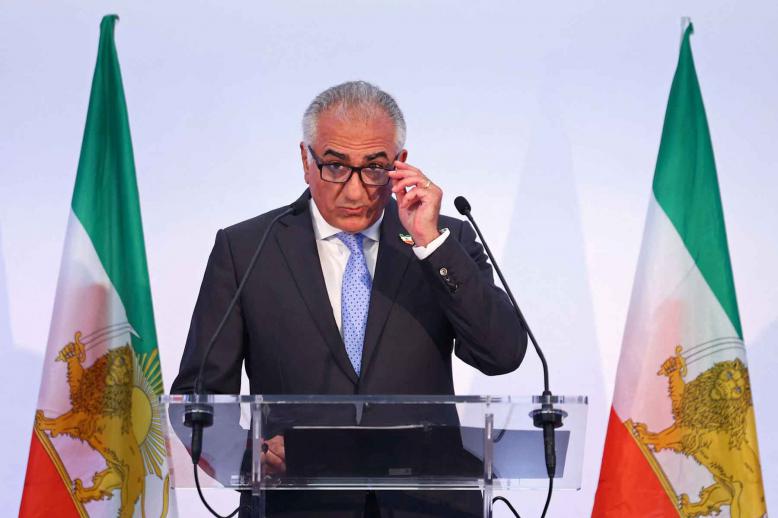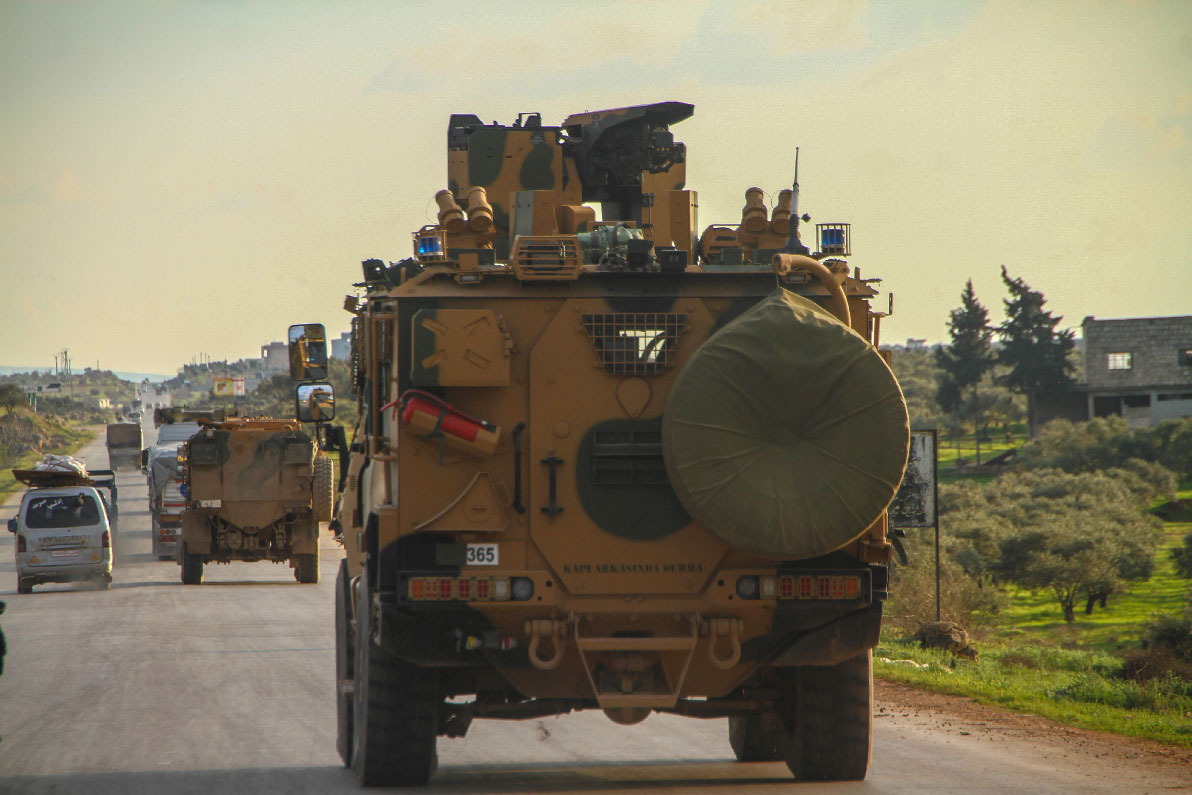Russian-Turkish patrols in Syria off to bumpy start
BEIRUT - Joint Russian-Turkish patrols were to begin in northern Syria, based on a March 5 agreement between Russian President Vladimir Putin and Turkish President Recep Tayyip Erdogan. The patrols were to ensure that the M4 highway, linking Aleppo to Latakia, were kept out of the hands of the Syrian Army, the Islamic State and the Kurds.
Its sharing between Russia and Turkey was something of a reward for Erdogan, in exchange for abandoning the M5 highway, which had been high on his target list, along with recent territorial gains by the Russian and Syrian armies.
The Turkish president sluggishly accepted a fraction of what he had originally aimed for in Idlib, waiting for conditions to change before asking for more or claiming it unilaterally. The joint patrols were only a fraction of that fraction and they are very much toothless, lacking a monitoring mechanism, as Erdogan had wanted, or UN-backing.
Twice, during a recent 10-day period, the joint patrols were aborted by civilians carrying the tricolour of the Syrian opposition, claiming they were unhappy with the Putin-Erdogan deal. It gave Russia too much and got very little in return, they said, prompting the Russian media to write them off as “rebel provocations.”
The demonstrators outlined demands that sounded dangerously close to those of Erdogan, starting with a no-fly zone over Idlib to a halt of Russian military operations.
Turkish authorities automatically took ten steps back, claiming they had nothing to do with the angry Syrians. The Russians took that with a grain of salt, suspecting that behind the demonstrations was none other than Erdogan himself.
“I think that the rebels are blocking the Aleppo-Latakia highway with Turkish tactical backing,” said Hilal Khashan, professor of political science at the American University of Beirut. “The Russian-Turkish alliance is unnatural and will reach its logical conclusion: come to an unhappy ending.”
This alliance faced turbulence over strategic disagreement over both Idlib and Libya. So tense was the relationship last February that Russia allowed the killing of 33 Turkish troops in Syria.
Since then, the Syrian battlefield has been a mailbox for the Turkish and Russian presidents, who have been sending messages to each other through it. Erdogan hated what Putin offered him on March 5, given that it denied him a no-fly zone, made no mention of the M5 and refused to increase his share of checkpoints in Syria from the current 25 to 50. It treated the cities of Khan Sheikhoun, Maaret al-Numan and Saraqib -- all in the Idlib vicinity -- as permanent gains for the Syrian Army.
Whether Erdogan asked the Syrian demonstrators to abort the patrols or did nothing to prevent them does not really matter. What is important is that the message came across loud and clear to Moscow. Erdogan was saying even if he accepts concessions on Idlib, his Syrian proxies won’t and they are armed to the teeth.
Reciprocating in similar fashion, the Russians signed their own message to Turkey. For starters, talks were suddenly jump-started between Damascus and the Syrian Kurds, under Russian auspices, ostensibly because of the outbreak of the coronavirus, which required cooperation in Qamishli and Hasakah.
That raised red flags in Ankara and so did mediation with the Syrian Democratic Forces, after months of gridlock. Now the two sides are willing to return to the negotiating table to revisit an October 2019 agreement that called on them to disband two of their powerful militias and incorporate them into the Syrian Army.
This has constantly been the Russians' game, to “scare” Erdogan into engagement, through the Syrian Kurds. Whenever that failed, they would work in reverse, using Erdogan to force the Kurds into taking painful decision, such as the one reached at Hmeimim last October. At the time, all they did was look the other way as Erdogan’s tanks rumbled into Syria, threatening to dismantle Kurdish communes by force.
“It is doubtful that the March 5 deal will last” said Joshua Landis, director of the Centre for Middle East Studies at the University of Oklahoma. He pointed to previous Turkish-Russian ceasefires in Idlib -- a total of 14 -- saying: “They have not lasted indefinitely or even for long periods of time nor were they intended to.”
Erdogan would think twice before returning to the battlefield, knowing that his Syrian proxies are no match for the superiority of the Russian war machine. Since the start of this year, the Russian and Syrian armies overran important cities in Idlib and would have taken more had the ceasefire not been reached March 5.
“The Syrian government position is strong and clear” Landis added, “it is determined to take back all territory occupied by rebel and foreign forces. International law is on its side."
Sami Moubayed is a Syrian historian and author of Under the Black Flag (IB Tauris, 2015).
This article was originally published in The Arab Weekly.


